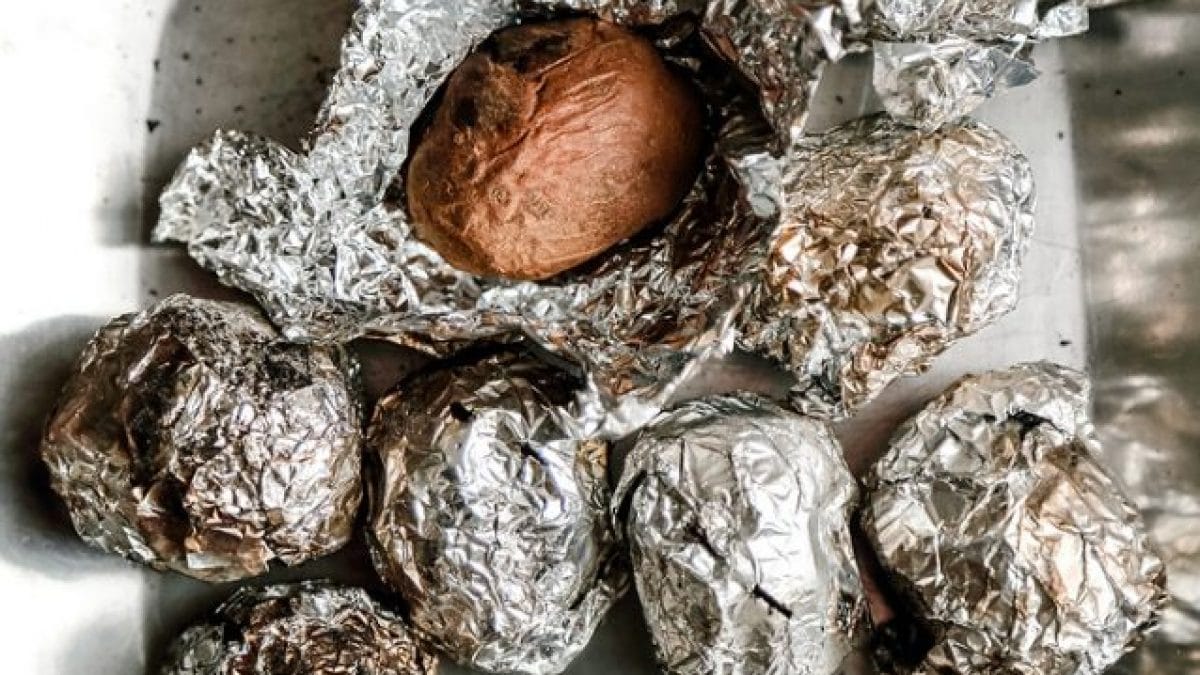
Baking a potato wrapped in aluminum foil feels like second nature. After all, it’s a classic cooking technique that’s been passed down through recipes, potlucks, and backyard cookouts. But while the foil might make your spuds look tidy and your cleanup a breeze, it’s not the best choice for baking. In fact, it’s a practice that could impact everything from flavor to food safety. Here’s why it’s time to rethink your relationship with aluminum foil and potatoes.
That Crispy Skin? Foil Says, “Not Today”
One of the best parts of a baked potato is the crispy, salty skin—practically a snack on its own. Wrapping a potato in foil, however, traps steam and creates a soggy outer layer instead of a satisfying crunch. Think of foil as a potato sauna: great for keeping moisture in, but terrible for achieving that perfectly roasted texture. For the ultimate baked potato, the skin needs to be exposed to the dry heat of the oven.
Aluminum and Heat: A Potentially Problematic Pair
When aluminum foil is heated, a small amount of aluminum can leach into your food. While studies suggest this is generally minimal and unlikely to cause harm in occasional use, some experts caution against frequent exposure, especially with acidic or salty foods. While a single baked potato likely won’t harm you, the long-term effects of frequent foil use remain a topic of debate. Is it worth the risk for a food that tastes better without it anyway?

A Perfect Storm for Bacteria
Here’s a food safety concern that’s often overlooked: aluminum foil can create the perfect environment for botulism—a rare but serious foodborne illness. When a foil-wrapped potato is left to cool at room temperature, the trapped moisture and lack of oxygen can encourage the growth of Clostridium botulinum bacteria. The risk is higher if you store those foil-wrapped potatoes without refrigerating them promptly. Baking without foil avoids this dangerous scenario entirely.
Flavor Matters
Wrapping a potato in foil doesn’t just affect its texture; it can also dull its flavor. The steamy cooking method softens the potato to the point where it can feel bland and mushy. Baking without foil allows the potato’s natural flavors to develop, creating a caramelized, earthy richness that’s anything but boring. Your toppings will taste even better when paired with a potato that’s been baked to perfection, not steamed into submission.
It’s Simply Not Necessary
One of the main arguments for foil is convenience—it helps potatoes cook evenly and keeps them from drying out, right? Not exactly. A potato baked directly on the oven rack or a baking sheet cooks just as evenly, and a quick rub of oil can keep it from drying out. Plus, skipping the foil means one less thing to toss, making your cooking routine just a little more eco-friendly.
;Resize,width=767;)
